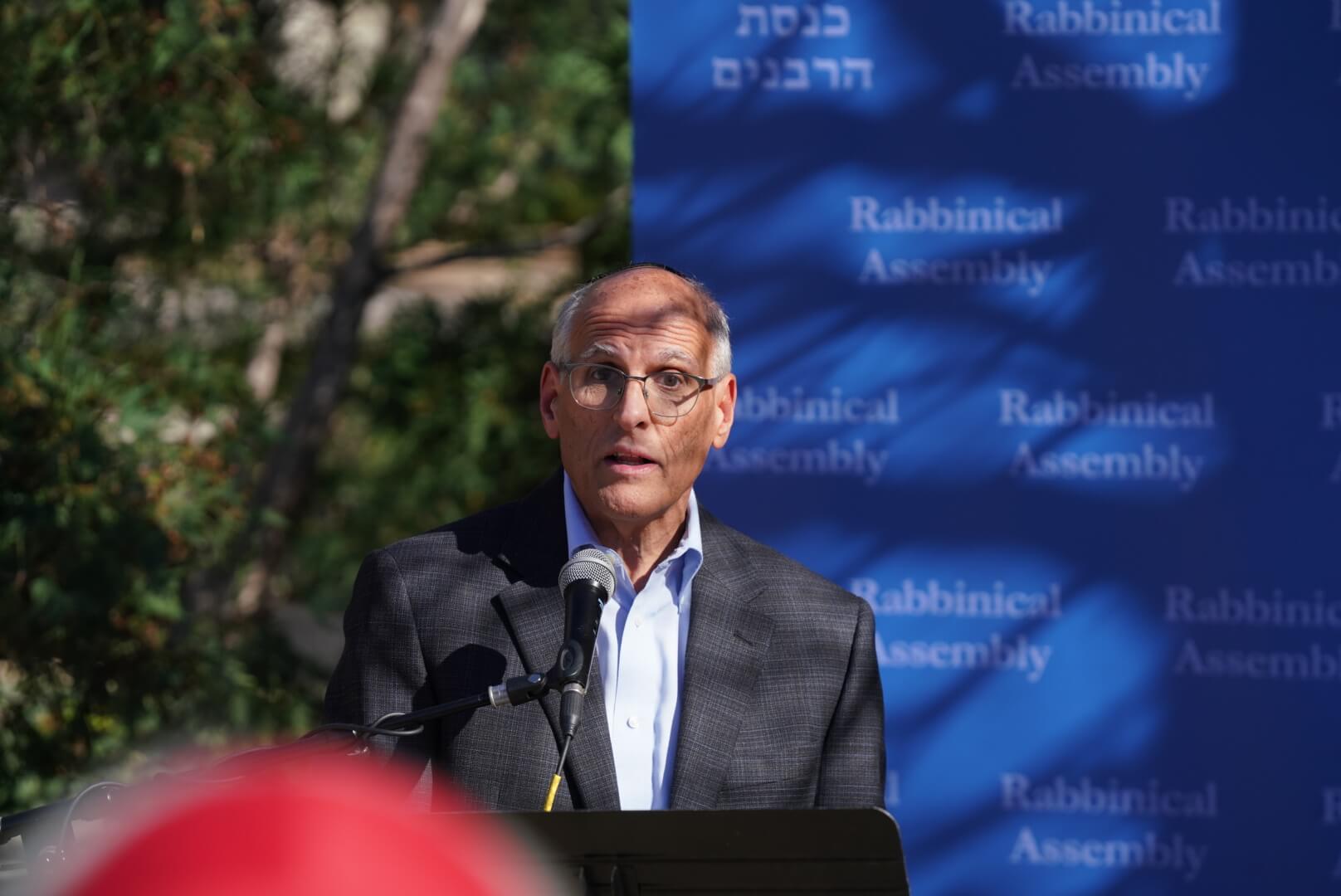‘Misinformed’ intermarriage rumors distress some Conservative rabbis
Some worry that the rules on presiding over intermarriages are about to change

Graphic by Angelie Zaslavsky
A number of prominent Conservative rabbis wrote a letter to the Rabbinical Assembly last year declaring their strong opposition to what some feared was an imminent shift in the movement’s position on intermarriage.
The movement, to which 17% of American Jews belong, has long forbidden its rabbis from presiding at marriages between Jews and non-Jews. But some of its rabbis are performing them anyway, alarming their more traditionally minded colleagues, and setting off a heated Conservative intermarriage debate.
“Various rumors had been flying around that the Conservative movement, or the Rabbinical Assembly, wanted to change its position on this issue,” said David Golinkin, an influential Conservative rabbi in Israel, who spearheaded the letter.
But Rabbi Jacob Blumenthal, chief of the Rabbinical Assembly, the movement’s membership group of approximately 1,700 rabbis, said in an interview that there was no “immediate plan” to change its policy on officiating marriages between Jewish and non-Jewish partners.
“The premise of the letter is misinformed,” he said.
Blumenthal said that while the organization has a committee examining its standards, the goal is to clarify how Conservative clergy should operate within the existing rules. He said the Rabbinical Assembly wrote back to the group of rabbis explaining this distinction.
“We want to focus on how rabbis can invite individuals and couples into conversations around creating a Jewish home in a space that is not judgmental,” he said. “And how we can, for example, help the couple and their families celebrate this milestone event.”
Blumenthal, who also leads the United Synagogue of Conservative Judaism, the movement’s network of about 600 synagogues, said that “best practices” the committee may recommend might include things like helping couples install a mezuzah at their home.
Golinkin said that if that was the scope of the committee’s work, he had no concerns.
“I’ll just say, if that’s the case and those are the issues being discussed by the subcommittee then I think no one would have a problem with that,” he said. “Reaching out to people who are intermarried is a mitzvah.”
‘No decisions’
The Forward learned about the letter’s existence, and Golinkin’s role, from an anonymous source. But the letter itself and the full list of signatories has been kept private. Golinkin chaired Rabbinical Assembly’s law committee in Israel for 20 years, and other rabbis who signed the letter are believed to include two past presidents of the Rabbinical Assembly and other prominent rabbis.
The question of intermarriage, over which Conservative rabbis can be ejected from the Rabbinical Assembly for performing, has strained the movement in recent years. Some rabbis have left over the issue, while others perform such ceremonies quietly.
Rabbi Elliot Cosgrove, leader of Park Avenue Synagogue in New York City, said in a November sermon that he had been lobbied during the Rabbinical Assembly’s recent convention to sign onto letters for and against intermarriage. He declined to do either.
“I’m no prophet but based on my experience last week I predict the question of rabbinic officiation at interfaith marriages will come to a head in the Conservative movement in the next two or three years,” Cosgrove said.
Rabbi Harold Kravitz, president of the Rabbinical Assembly, announced a series of listening sessions last year, starting in December and running through at least the end of January, about the issue of intermarriage.
In his email to Rabbinical Assembly members detailing those meetings, he said that the committee working on the issue “did not begin with any assumptions about an outcome.”
“No decisions have been made, other than a commitment to engage colleagues in a respectful set of conversations,” Kravitz said.
Blumenthal said the committee would conclude its work around June.















